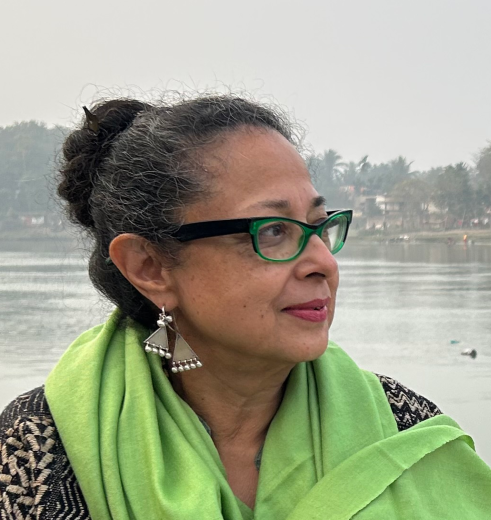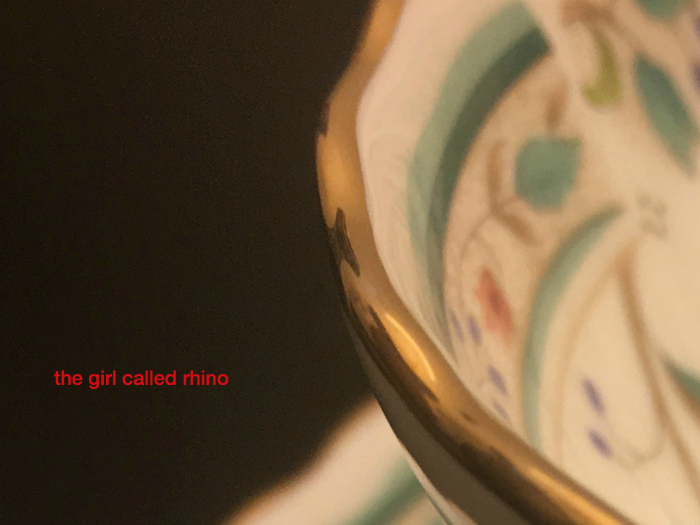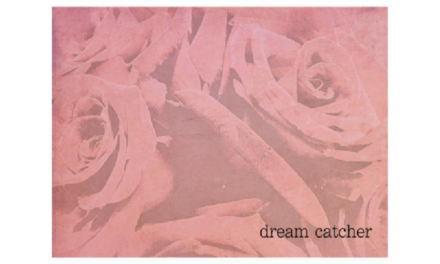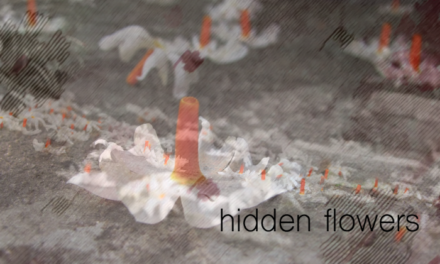A wail rose up in the calm late afternoon air. The tail end of it came stalking into the room with the plump little girl, who threw herself on the bed, burying her face in the cushion lying on top of the carefully covered pillows. The wail turned into a smothered whimper now, though as far as the calm of the afternoon was concerned, both had the same effect on it.
“Oh Ma! Why’re you behaving like that? What’s the matter? Ei Gondar, why’re you moaning… what’s in your mouth? Are you trying to hide something? Stole sweets from Jethima’s kitchen again?!! Ei… tell me… tell!” Sunila said sternly.
Sunila was sitting at a table in the corner of the large room, vigorously and meticulously cleaning the Japanese tea set their great grandfather had bought when he’d visited the country back in the early 1900s. Their great grandfather had been a lawyer, a very successful one, and a freedom fighter too. One of the family’s best-loved unverified story was, great grandfather had met Rash Behari Bose while in Japan, after which his mind had turned toward the freedom struggle and he had become a covert helper of the movement even as his practice flourished in the High Court. There was also considerable mirth all around every time it was mentioned that their house, built by great grandfather, was just off Rash Behari Avenue. No one bother with the fact that the major east-west connector was named after another Rash Behari… Sir Rash Behari Ghosh.
A vehement though muffled yell came from the pillow. The little girl’s dark curly hair bounced as she shook her head from side to side and squealed again for good measure.
“Gondar! Don’t shout!” Sunila said sharply, glaring at her younger cousin.
The little girl kicked her legs about, setting the skirt of her school uniform flying and flapping. She hadn’t even taken off her shoes and socks yet.
Sunila shook her head and went back to her porcelain tea pot.
Gondar. Everyone called the little girl by that name. That it meant rhinoceros didn’t seem to matter. She was the youngest member of the family. As an infant, she used to chortle, “Gondar gondar!” when she saw a bird. Or a lizard climbing up the high walls. Or the mice that ran in and out of the house as and when they liked. Or the dog, who lived in a wooden crate turned into a pen. Or the sweets Jethima had just made and laid out on the table to cool. She’d usually be crawling at considerable speed toward the table as she said the word again and again, eyes shining, smiling and eager to reach her destination and get someone to carry her to the sweets.
Children tend to mumble smaller first words. But in her case it was this not easy to pronounce, disyllabic utterance, with a hard conjoined sound at its heart, that came out perfectly from cherubic lips, not a trace of childish babble in it. At first, everyone was somewhat flummoxed by it. Did babies even say such things? Her mother was terribly concerned. Firstly, babies didn’t say such things. Secondly, she was a girl, wouldn’t people make fun of her youngest child?
The elders of the family though decided, this was a sign of the toddler’s intelligence. She was exceptionally bright, which was why she could say such a difficult word so clearly at this tender age. And in time, by a process that’s not exactly formal, nor accepted as a norm of naming, she came to be known as Gondar. It was as simple as that.
Gondar was her pet name, her daak naam, the one by which she was most often called. She of course had a bhalo naam, her “good” or formal name… you had to have that, though it was rarely used by those who were close to you, no matter how wonderful the name might be. That name was for things like school, college, certificates, employers… the outside world. In this neat separation of the outer and more intimate world of an individual, perhaps the bhalo naam and daak naam system evinced a keen understanding of the human being and our lives… we never are merely one thing, are we?
Everyone doted on Gondar. From Bomma, the eldest person in the family, to the other grandparents – there were two sets of them – to the aunts, uncles, siblings, cousins, and, of course, her parents. Gondar was the cook’s pet and the maid who helped the cook swore she only came to work in this terrible nasty house because of Gondar Didi, for she loved her so. Bomma had a little smile tucked in the corner of her lips when she heard the maid, and said nothing. this was Panna the maid’s way of negotiating a raise, and there would be no more of that this year.
The twins came prancing into the room.
“Gondar, scaredy cat! Gondar,scaredy cat! Gondar, fail in maths, fail in maths! Gondar, scaredy…!”
“Gondar, bhitoor deem! Gondar, bhitoor deem! Gondar, onkey phail, onkey phail! Gondar, boka…!”
Two high-pitched voices chanted.
A scream of agony mixed with anger came from the pillow and tried to overpower the chant.
“Is this a house or a zoo!” Sunila exclaimed angrily, “Stop it, I say, stop it, you pests!”
Nobody paid her any attention.
“Choklet! Shondesh! If you shout once more, I’ll call Bor Jethu, I’m telling you!” Sunila threatened the fraternal twins.
Choklet, or chocolate, was the the darker of the two. Shondesh had a paler complexion, so was assigned the generic name given to a huge range of cottage cheese-based sweets that the bengali palate was so devoted to.
Both the boys went stock still at that. No one wanted Bor Jethu, their eldest uncle, to arrive here. Bor Jethu’s wrath was best avoided. The boys had got enough knocks and slaps on their heads to know that. Besides, Bor Jethu too was excessively fond of Gondar. No one ever scolded her. And that was just plain unfair. But who’d listen to two eleven year old boys? Even Bomma laughed when they complained.
After a couple of minutes’ silence, the boys started sniggering. They kept their voices down, but the delight of Gondar dreading something was too much to not give expression to.
No, not everyone doted on the girl called Rhino. Her twin cousins, only a year older than her, found great pleasure in annoying her. It never occurred to them that that might simply be because she had displaced them from their comfortable niche, as they’d been the youngest and most indulged members of the family till her arrival. She was the usurper, but Choklet and Shondesh, like gamboling lambs in the meadow who did what they did for it pleased them, weren’t going to analyse the situation. They’d just pull Gondar’s leg and enjoy her screaming and crying.
They were waiting for her to burst into tears. that’s what she usually did, after her usual grunts and wails.
Choklet and Shondesh had heard Gondar tell Jhillee, the maid’s daughter, she had a mathematics test the next day. The twins were delighted. Gondar hated mathematics.
Gondar was a reasonably intelligent child. She had learnt to read and write two languages, English and Bangla, by the time she was eight. She was good at geography and history, she excelled in sports despite her portly build. She was unfazed by science, even when she made mistakes. But she hated maths.
She couldn’t understand the subject at all. When Miss Bhadra, the teacher, said “Average”, Gondar wanted to run away. Percentage made her heart drop to her stomach. BODMAS, fractions, a plus b whole squared, everything confused her. The numbers never seemed to get to the right place, no matter what. She never could get good marks. How was she to know how many bananas had three monkeys eaten if forty two bananas had been eaten by seven monkeys? Oh, she wished no one ever had discovered maths.
The twins were intent on doing everything to make her feel worse. No question of letting this opportunity go. The sniggering got more frantic and louder.
Sunila looked up from the shiny saucer in her hands and pursed her lips.
The boys ran and hid behind the bed, but you could hear their chuckles. One of them started calling out the tables of two.
“Two ones are two, two twos are four, two threes are seventeen…!”
Gondar squealed and kicked her legs furiously.
Choklet, Shondesh giggled and one of them piped up, “Gondar, scaredy cat! gondar, fail in maths!”
“Two eights are sixtee… nine!” sang out the other, and did a prance.
Bor Jethu walked in just then and bellowed, “What’s going on here? Why this noise?!!”
Sunila started. Choklet and Shondesh disappeared behind the bed.
Gondar got up and looked at Bor Jethu woefully. The rather portly elderly man, with a pugnacious face and a bristly, no-nonsense air succumbed to that look as even possibly the tea set knew he would.
He shuffled hurriedly toward the bed and his beloved niece. Gondar though was already jumping up and rushing out of the room.
“Jhillee Didi, Jhillee Didi!” she called out to Panna the maid’s daughter, “From tomorrow I also won’t go to school, just like you!”
Jhillee came into the room, in her faded frock of some unknown hue, her thick black hair oiled and parted at the centre, and pulled into two tightly wound plaits looped and crisscrossed neatly at the back of her head. Gondar ran and caught hold of her hand, and started pulling her along after her.
Jhillee, who was twelve years old, had never been to school. Her mother had told her the other day that her father would be coming to fetch her soon. He was looking for a good boy in the village. It was time Jhillee got married.
Jhillee skipped along after Gondar, suddenly feeling happy.
And so went by another afternoon in the house off Rash Behari Avenue. Where a great grandfather had seen perhaps some dreams, made surely lots of plans, and drunk tea from a fine Japanese tea set. Had he really met Rash Behari Bose? Had he known one day he’d have a great granddaughter called Rhino?
………………………………………………………………………………………………………………………………………..
It was a curious house and though it’s almost entirely gone, I keep seeing stories in it. A house from ever since i can remember, where I’ve even lived but have never thought of as my home. Not everything I suppose can be defined and neatly labelled. Which is kind of nice. Hope the Bengali words weren’t confusing. “Jethima” is father’s elder brother’s wife, an aunt. “Jethu” is how you address your father’s elder brother. “Bor” or “boro” (the sound of r is difficult to explain, if you’re not used to it, like the french r, it’s hard to pronounce) is for elder or eldest. So, “bor jethu” would be your father’s eldest brother. “Bomma” usually is the eldest among women in the grandparents’ generation. “Didi” is older sister. “Bhalo” is good, “Bhalo naam” is proper name. “Daak naam” is the name by which you’re called by those close to you, it’s an informal name. “Shondesh” refers to Bengali sweets made of cottage cheese, there are hundreds of varieties. And “Gondar”, of course, means rhino





